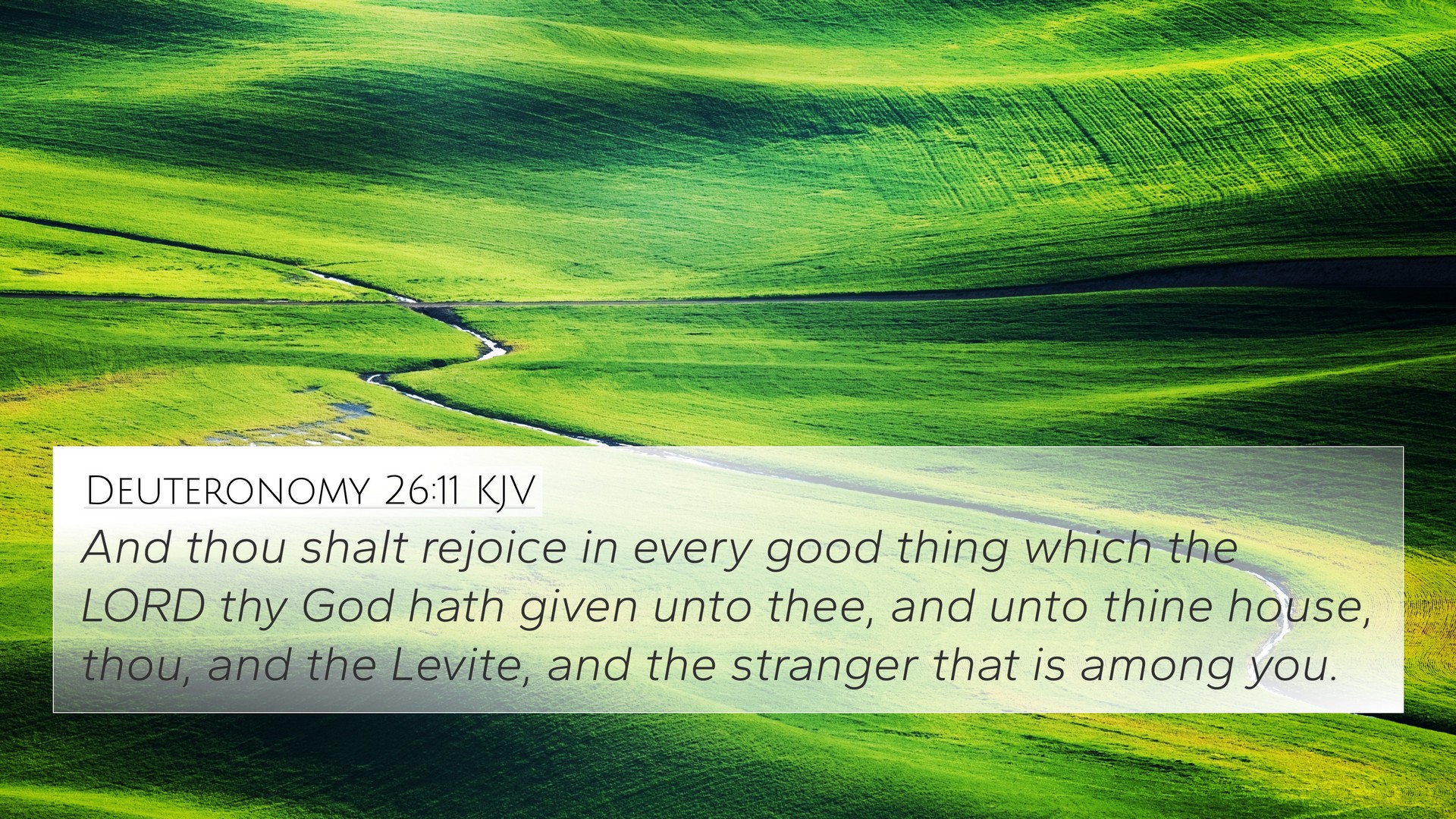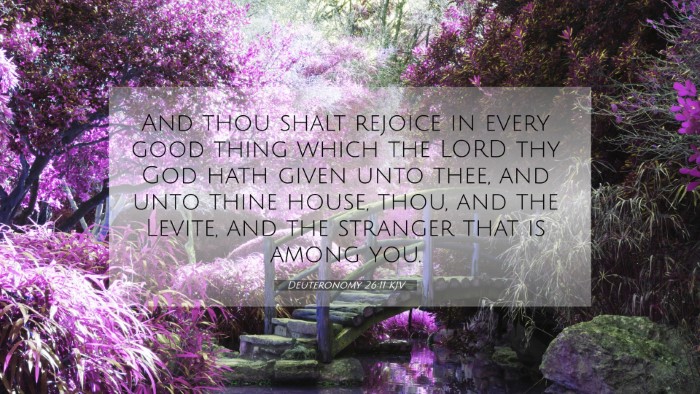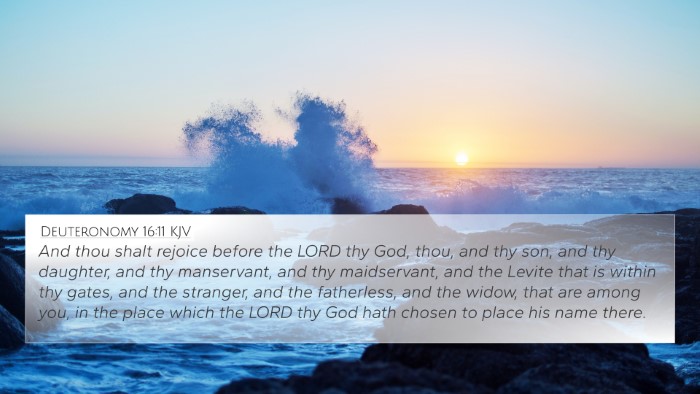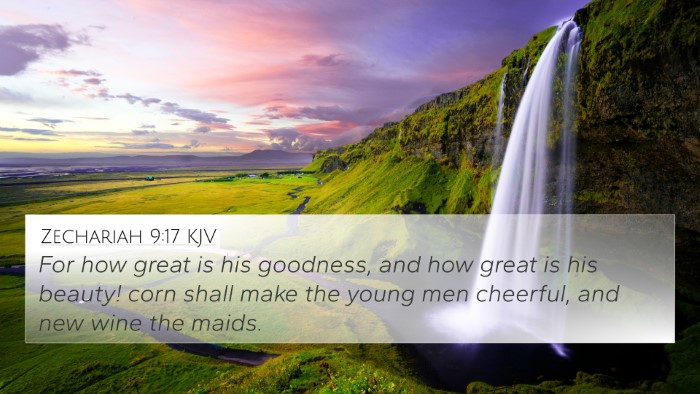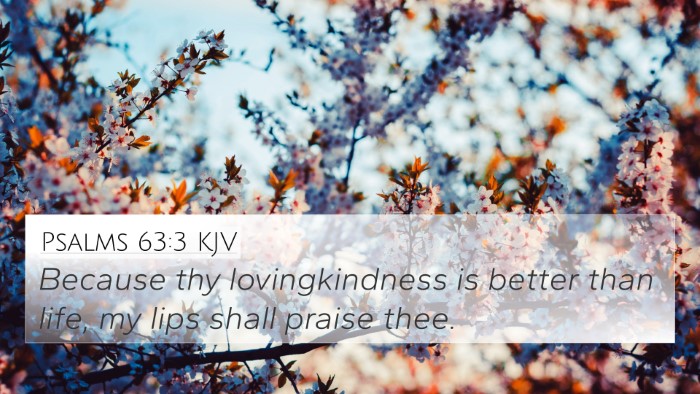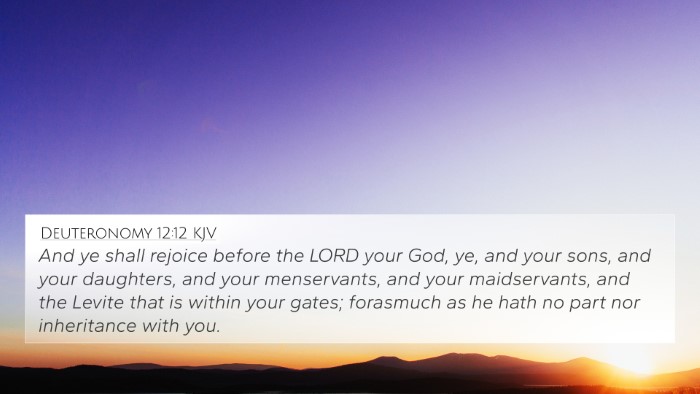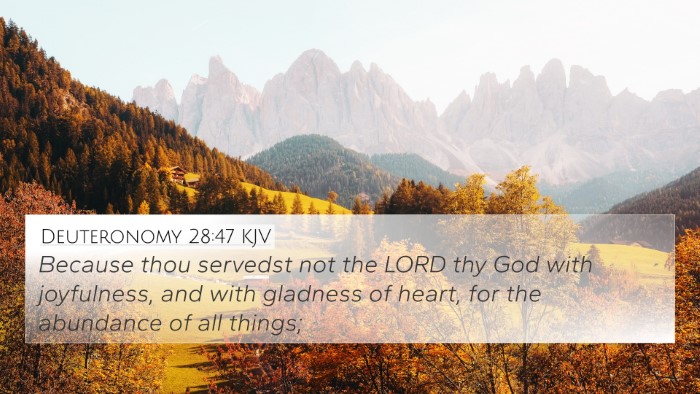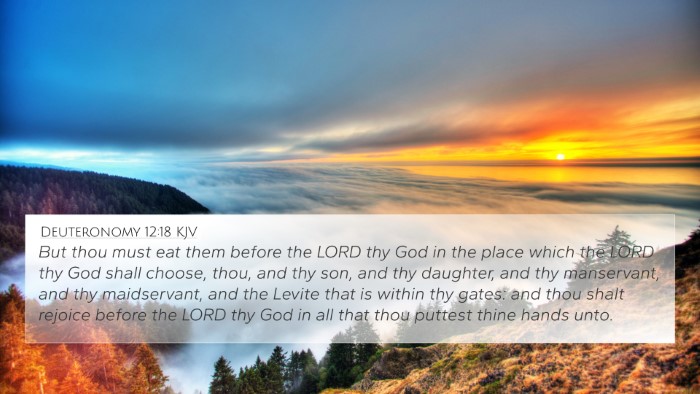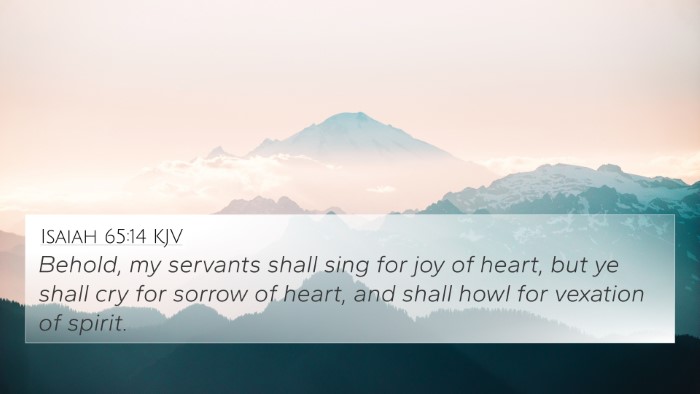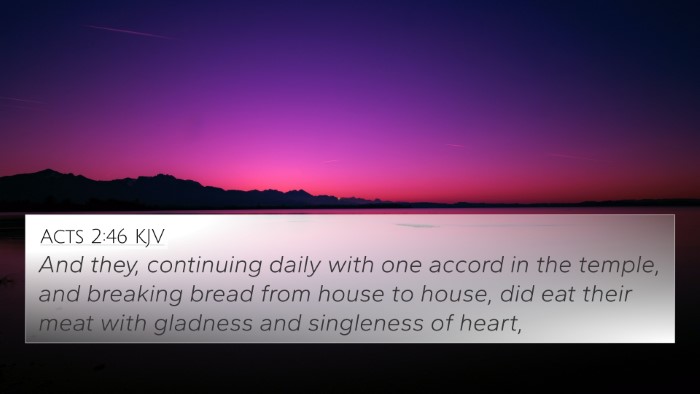Understanding Deuteronomy 26:11
Deuteronomy 26:11 states: "And thou shalt rejoice in every good thing which the Lord thy God hath given unto thee, and unto thine house, thou, and the Levite, and the stranger that is among you."
This verse invites believers to celebrate the blessings from God, emphasizing joy in receiving divine gifts. The joy mentioned here is not just for the individual but extends to the Levite and the foreigner, indicating a communal aspect of rejoicing in God's goodness.
Key Themes and Insights
- Joy as a Response to Blessing: The verse emphasizes the importance of joy as a natural response to the blessings provided by God. Matthew Henry comments that this joy reflects gratitude and acknowledgment of God's provision.
- Inclusivity in God’s Blessings: Albert Barnes points out that the mention of the Levite and the stranger highlights an inclusive approach to God’s blessings. All members of the community are encouraged to share in the rejoicing.
- The Role of Gratitude: Adam Clarke notes that gratitude should lead to a communal celebration, fostering unity and encouraging others to acknowledge God's blessings alongside us.
Cross-References
This verse is significant in several contexts and can be cross-referenced with various other scriptures to enrich understanding:
- 1 Chronicles 16:34: "O give thanks unto the Lord; for he is good; for his mercy endureth forever." - A call to gratitude parallels the rejoicing in Deuteronomy 26:11.
- Deuteronomy 14:29: This verse emphasizes provisions for the Levite and the needy, reinforcing the communal responsibility to care for all in society.
- Psalm 100:4: "Enter into his gates with thanksgiving, and into his courts with praise: be thankful unto him, and bless his name." - Here, joy in worship reflects the joy mentioned in Deuteronomy.
- Luke 10:25-37: The parable of the Good Samaritan illustrates how love and kindness should extend to strangers, echoing the inclusivity found in Deuteronomy 26:11.
- James 1:17: "Every good gift and every perfect gift is from above..." - Reinforces the source of joy, aligning with the theme of divine blessings.
- Philippians 4:4: "Rejoice in the Lord always: and again I say, Rejoice." - Paul’s command to rejoice mirrors the joyous demeanor found in Deuteronomy.
- Romans 12:15: "Rejoice with them that do rejoice, and weep with them that weep." - Encouraging communal joy aligns with the spirit of rejoicing in blessings together.
Connections Between Bible Verses
Analyzing Deuteronomy 26:11 in relation to other scriptures can yield profound insights. By identifying the connections between these verses, one can see how themes of joy, gratitude, and community are woven throughout the biblical narrative.
- Linking Bible Scriptures: Deuteronomy’s call to rejoice finds parallels in Paul’s teachings in the New Testament, exemplifying joy in Christ as foundational to the Christian life.
- Thematic Bible Verse Connections: This verse plays a key role in discussing themes of celebration tied to the biblical feasts and acts of worship, providing a context for understanding communal and individual rejoicing.
- Bible Concordance Tools: For deeper study, using a Bible concordance can help locate themes of joy, gratitude, and community across various texts to aid understanding of Deuteronomy 26:11.
Practical Application and Reflection
Reflecting on the meaning of Deuteronomy 26:11 encourages believers to cultivate an attitude of gratitude and joy in their lives. It prompts the question of how one can actively share in rejoicing with others, particularly with those who may be less fortunate.
- Community Celebration: Consider how a congregation or small group might celebrate together the blessings they have received.
- Acts of Kindness: Following the example set forth in Deuteronomy, look for ways to support Levites (or modern equivalents) and strangers in need within your community.
- Daily Gratitude Practice: Incorporate a practice of daily gratitude into your life, recognizing and rejoicing in the good things God provides.
Inter-Biblical Dialogue
The verses that can be cross-referenced with Deuteronomy 26:11 not only highlight the importance of rejoicing but also show how this theme resonates throughout the Bible, from the Old Testament to the New Testament. Understanding these connections enhances the depth of Scripture and fosters a richer interpretation of the text.
- Identifying Connections: Explore how the idea of rejoicing in God’s blessings extends across testaments, informing the believer's practice and community life.
- Comparative Analysis: Compare how joy is portrayed across different books of the Bible and the implications it has for believers today.
